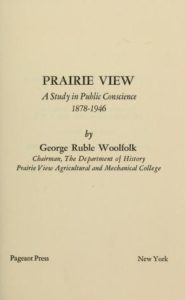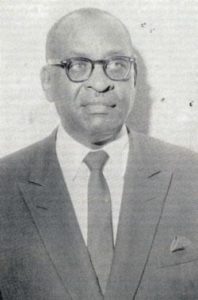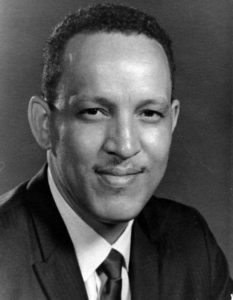Authors Share Journey While Honoring Dallas’ Black History
(Pictured: Freedman’s Cemetery Memorial, Dallas)
Doctor Mamie McKnight and her daughter, Ginger McKnight-Chavers, shared their journeys during a recent visit to North Texas, while recognizing the history of blacks in Dallas.
“My mother’s family and my dad’s family have been in Texas since slavery, and we’re just really rooted here,” said McKnight-Chavers, who now lives in New York with her mother.
NBC 5 photojournalist Noah Bullard met up with the two while strolling through a Dallas landmark: Freedman’s Cemetery.
“This part of Dallas was probably one of the first areas occupied by African-Americans,” McKnight said. (read more, watch video)
Two African-American women pilots make history
 Delta Airlines made history recently, thanks to pilots Stephanie Johnson and Dawn Cook.
Delta Airlines made history recently, thanks to pilots Stephanie Johnson and Dawn Cook.
Atlanta-based First Officer Cook and Detroit-based Capt. Johnson were the first two black women to fly a Delta mainline flight together in the cockpit on Sunday, Feb. 26.
They flew an Airbus A320 from Detroit to Las Vegas and after they arrived they posted a photo of the two on Facebook.
As for Johnson, she also is Delta’s first African-American female captain. (read more, watch video)
Opinion: The black history renaissance that our leaders should not miss
(The Hill) The grand opening of the Harriet Tubman Underground Railroad Visitor Center is an opportunity for a fractured nation to find a common vision around the ideals of freedom which the heroine embodies. It is the latest in a series of heritage milestones in some of the most unexpected places, which are restoring the overlooked central role of African-Americans in American history.
The Tubman grand opening should serve as a lesson to the Trump administration about how to avoid such snafus as the HBCU executive order signing, which promised much, but delivered a cringe worthy moment for the administration.
The country is at a crossroads in how we view and talk about race. And the current administration should play a role in celebrating that diversity and joining those conversations. (read more)
TIPHC Bookshelf
 Published scholarship on black history in Texas is growing and we’d like to share with you some suggested readings, both current and past, from some of the preeminent history scholars in Texas and beyond. We invite you to take a look at our bookshelf page — including a featured selection — and check back as the list grows. A different selection will be featured each week. We welcome suggestions and reviews. This week, we offer, “Prairie View, A Study in Public Conscience, 1878-1946,” by George Ruble Woolfolk.
Published scholarship on black history in Texas is growing and we’d like to share with you some suggested readings, both current and past, from some of the preeminent history scholars in Texas and beyond. We invite you to take a look at our bookshelf page — including a featured selection — and check back as the list grows. A different selection will be featured each week. We welcome suggestions and reviews. This week, we offer, “Prairie View, A Study in Public Conscience, 1878-1946,” by George Ruble Woolfolk.
This is essential reading for insight to the founding and early years of Prairie View A&M as Woolfolk offers in-depth details for how the school came to be and the people responsible. A Louisville native, Woolfolk was a historian and leading scholar at Prairie View. He earned a bachelor of arts degree at Louisville Municipal College for Negroes/University of Louisville (1937), a master of arts at Ohio State University (1938), and a Ph.D. at the University of Wisconsin (1947). At Wisconsin, he studied with the noted Civil War historian, William B. Hesseltine, and was a graduate school-contemporary of numerous outstanding young historians such as Kenneth Stampp and Frank Freidel. Woolfolk joined the faculty at Prairie View Normal and Industrial College in 1943, before completing his dissertation and receiving the doctorate in 1947. His career at Prairie View, which included service as chair of the history department and chair of the Division of Social Science, spanned five decades.
Woolfolk’s historical research focused on the economic and social facets of southern history and African-American studies. His other important books included The Cotton Regency: The Northern Merchants and Reconstruction, 1865–1880 (1958, reprinted in 1979); Negro Colleges, Texas (1962); and The Free Negro in Texas, 1800–1860: A Study in Cultural Compromise (1976). He also published articles during the 1950s that contributed to changing the historiography of slavery by emphasizing the flexibility and profitability of the institution.
This Week In Texas Black History, Mar. 5-11
 6 – On this day in 1972, basketball star Shaquille O’Neal was born in Newark, New Jersey. His father was a U.S. Army sergeant and O’Neal spent part of his childhood in Germany, but began standing out on the basketball court at Cole Junior-Senior High School in San Antonio. In 1989, O’Neal led Cole to the 3A state championship and was named national high school Player of the Year. He played professionally for 19 seasons and won world championships with the Los Angeles Lakers and Miami Heat.
6 – On this day in 1972, basketball star Shaquille O’Neal was born in Newark, New Jersey. His father was a U.S. Army sergeant and O’Neal spent part of his childhood in Germany, but began standing out on the basketball court at Cole Junior-Senior High School in San Antonio. In 1989, O’Neal led Cole to the 3A state championship and was named national high school Player of the Year. He played professionally for 19 seasons and won world championships with the Los Angeles Lakers and Miami Heat.
 6 – Civil Rights activist Dr. Lonnie Smith died on this day in 1971. A native of Yoakum, Smith started a dental practice in Galveston in 1925 after graduating from Meharry Medical College in Nashville. He attempted to vote in the 1940 Democratic Primary but was denied a ballot at his Houston precinct because voting in was open only to whites. With help from the NAACP, Smith filed a suit that reached the U.S. Supreme Court which ruled in his favor. The ruling opened primary voting to all eligible Texans.
6 – Civil Rights activist Dr. Lonnie Smith died on this day in 1971. A native of Yoakum, Smith started a dental practice in Galveston in 1925 after graduating from Meharry Medical College in Nashville. He attempted to vote in the 1940 Democratic Primary but was denied a ballot at his Houston precinct because voting in was open only to whites. With help from the NAACP, Smith filed a suit that reached the U.S. Supreme Court which ruled in his favor. The ruling opened primary voting to all eligible Texans.
 7 – On this day in 1942, the first cadets graduated from flying school at Tuskegee, Alabama. In June 1943, the first squadron of black aviators, the 99th Pursuit Squadron, flew its first combat mission, strafing enemy positions on the Italian Island of Pantelleria. Overall, there were 32 Texans who graduated from the school between 1942 and 1946 and flew as Tuskegee pilots, and many others from Texas who served in support groups – mechanics, administration, etc.
7 – On this day in 1942, the first cadets graduated from flying school at Tuskegee, Alabama. In June 1943, the first squadron of black aviators, the 99th Pursuit Squadron, flew its first combat mission, strafing enemy positions on the Italian Island of Pantelleria. Overall, there were 32 Texans who graduated from the school between 1942 and 1946 and flew as Tuskegee pilots, and many others from Texas who served in support groups – mechanics, administration, etc.
 9 – Legendary Motown producer, composer, and musical director Gil Askey was born in Austin on this day in 1925. Askey attended the original Anderson High School and played trumpet in the marching band. At Motown, Askey was musical director for Diana Ross and worked with other artists, including Stevie Wonder, the Jackson Five, Marvin Gaye, and the Four Tops. Askey was nominated for an Academy Award for his work on the 1972 film “Lady Sings The Blues” based on the life of Billie Holliday.
9 – Legendary Motown producer, composer, and musical director Gil Askey was born in Austin on this day in 1925. Askey attended the original Anderson High School and played trumpet in the marching band. At Motown, Askey was musical director for Diana Ross and worked with other artists, including Stevie Wonder, the Jackson Five, Marvin Gaye, and the Four Tops. Askey was nominated for an Academy Award for his work on the 1972 film “Lady Sings The Blues” based on the life of Billie Holliday.
 9 – On this day in 1930, innovative jazz saxophonist Ornette Coleman was born in Fort Worth. His album “Sound Grammar” received the 2007 Pulitzer Prize for music. By age 14, Coleman had taught himself to play the instrument and read music. In 2007, he also received a Grammy Award for lifetime achievement. In 2009, Coleman received the Miles Davis Award from the Festival International de Jazz de Montréal for his contributions to the evolution jazz.
9 – On this day in 1930, innovative jazz saxophonist Ornette Coleman was born in Fort Worth. His album “Sound Grammar” received the 2007 Pulitzer Prize for music. By age 14, Coleman had taught himself to play the instrument and read music. In 2007, he also received a Grammy Award for lifetime achievement. In 2009, Coleman received the Miles Davis Award from the Festival International de Jazz de Montréal for his contributions to the evolution jazz.
 11 – Prairie View A&M University opened its doors on this date in 1878 with an enrollment of eight students, all men, for the first state supported college in Texas for African Americans. The school, located 50 miles northwest of Houston, had its beginnings in the Texas Constitution of 1876, which, in separate articles, established an “Agricultural and Mechanical College” and pledged that “Separate schools shall be provided for the white and colored children, and impartial provisions shall be made for both.” Thus, Alta Vista Agricultural and Mechanical College of Texas for Colored Youth was established on August 14, 1876. Prairie View, a land-grant university authorized under the Morrill Acts of 1862 and 1890, is part of the Texas A&M System. (See TIPHC Bookshelf for “Prairie View, A Study in Public Conscience, 1878-1946.”)
11 – Prairie View A&M University opened its doors on this date in 1878 with an enrollment of eight students, all men, for the first state supported college in Texas for African Americans. The school, located 50 miles northwest of Houston, had its beginnings in the Texas Constitution of 1876, which, in separate articles, established an “Agricultural and Mechanical College” and pledged that “Separate schools shall be provided for the white and colored children, and impartial provisions shall be made for both.” Thus, Alta Vista Agricultural and Mechanical College of Texas for Colored Youth was established on August 14, 1876. Prairie View, a land-grant university authorized under the Morrill Acts of 1862 and 1890, is part of the Texas A&M System. (See TIPHC Bookshelf for “Prairie View, A Study in Public Conscience, 1878-1946.”)
Blog: Ron Goodwin, author, PVAMU history professor
 Ron Goodwin’s bi-weekly blog appears exclusively for TIPHC. Goodwin is a San Antonio native and Air Force veteran. Generally, his column addresses contemporary issues in the black community and how they relate to black history. He and the TIPHC staff welcome your comments.
Ron Goodwin’s bi-weekly blog appears exclusively for TIPHC. Goodwin is a San Antonio native and Air Force veteran. Generally, his column addresses contemporary issues in the black community and how they relate to black history. He and the TIPHC staff welcome your comments.
Read his latest entry, “Bearing His Cross,” here.
Submissions Wanted
Historians, scholars, students, lend us your…writings. Help us produce the most comprehensive documentation ever undertaken for the African American experience in Texas. We encourage you to contribute items about people, places, events, issues, politics/legislation, sports, entertainment, religion, etc., as general entries or essays. Our documentation is wide-ranging and diverse, and you may research and write about the subject of your interest or, to start, please consult our list of suggested biographical entries and see submission guidelines. However, all topics must be approved by TIPHC editors before beginning your research/writing.
We welcome your questions or comments via email or telephone – mdhurd@pvamu.edu.

